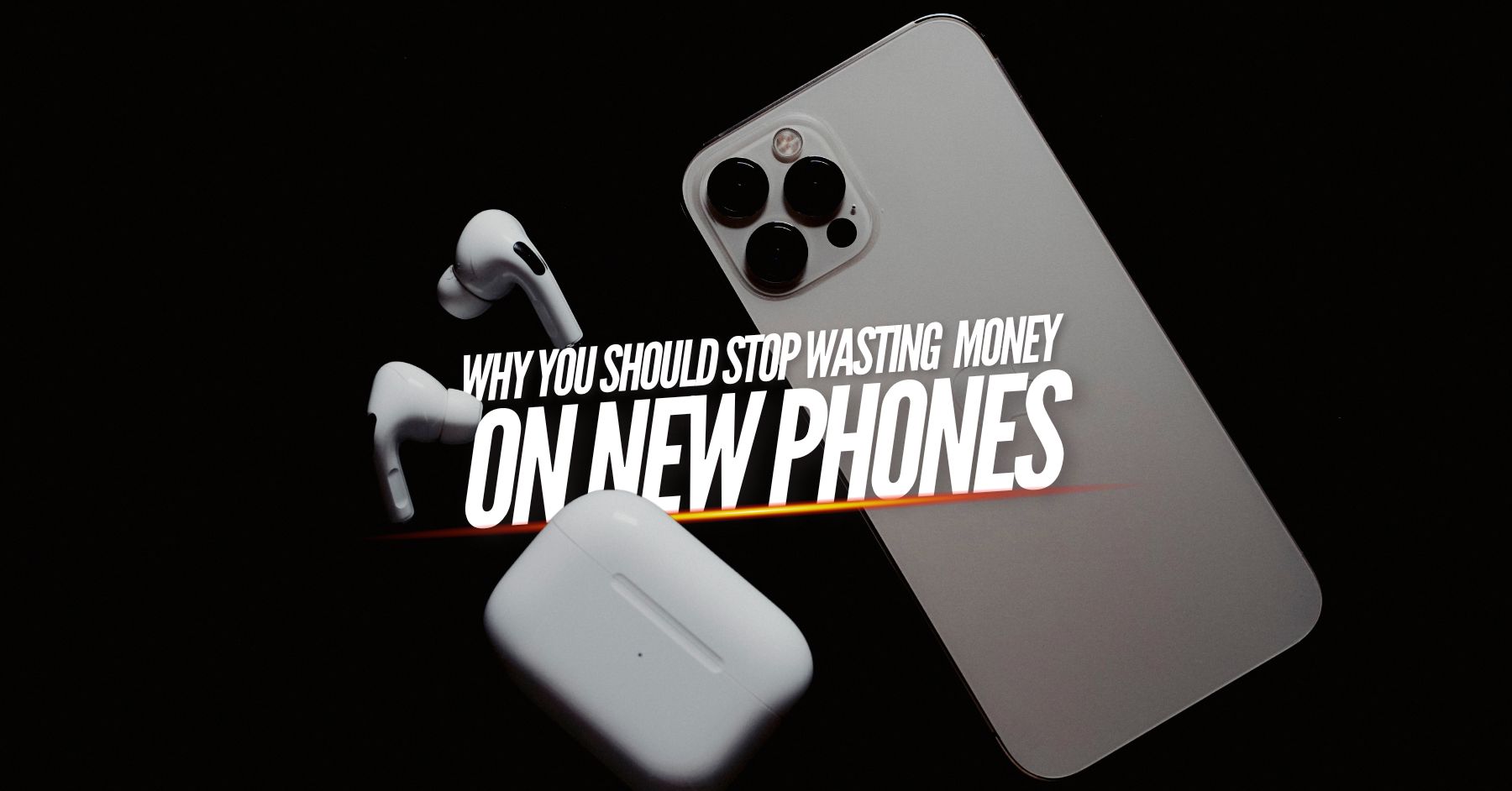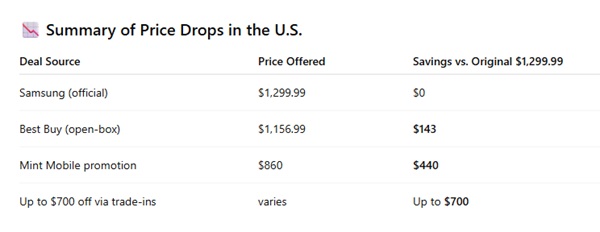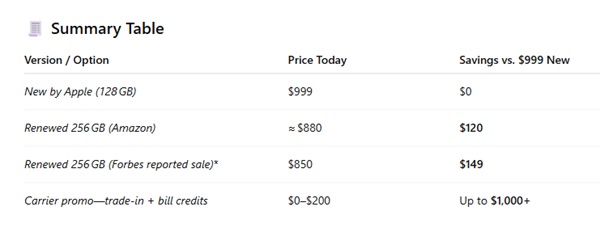
Chasing each shiny new phone release? You’re not alone—but experts say it might be wasting your hard-earned cash. Upgrading every year or two seems tempting, but newer doesn’t always mean better. In this article, we’ll explore why you should stop wasting money on new phones, how long your current device can still serve you well, and smart strategies to stretch its life. Let’s uncover the smarter way to tech.
Time is money—and so is your smartphone. Landing the latest model can seem like a thrill, but when you break down the numbers, the savings just aren’t there. With hefty depreciation, barely noticeable upgrades, and growing environmental damage, the case for frequent phone upgrades has serious cracks. It’s time to rethink your next tech impulse buy. Keep reading to learn why experts are urging consumers to stop wasting money on new phones—and how doing so benefits your wallet and the planet.
1. The Steep Drop in Value
One of the biggest reasons to stop wasting money on new phones is how fast they lose value. The moment you open the box, your shiny new phone is already worth less. In fact, most smartphones lose 20% to 30% of their value in just the first month. After a year, it’s not unusual for that same phone to be worth 50%–60% less than what you paid. And if you bought a premium phone like an iPhone or a Galaxy model, you’re looking at a $1,000 investment that could drop to just $400 or less in resale value within 12 months.
According to a study by musicMagpie, some Android phones depreciate even faster—up to 68% in just six months. This means every time you upgrade to the “latest and greatest,” you’re trading real cash for very minor improvements that lose value almost instantly. Phones today are more powerful than ever, and even 2- to 3-year-old models still run smoothly. So why spend top dollar on something that drops in worth faster than a new car?
📌 Reality check: A high-end smartphone bought for $1,000 could be worth just $700 or less in six months. If you keep upgrading every new release every year, you’re effectively throwing money away.
Samsung 25 Ultra Base Model

iPhone 16 Pro Base Model

2. Minimal Updates Don’t Justify Big Spends
Another solid reason to stop wasting money on new phones is that year after year, the upgrades are often very small. Many new models only bring slight improvements—maybe a slightly faster chip, a little better battery life, or a small change to the camera. But to the average user, those changes are hardly noticeable in daily use.
For example, when comparing the iPhone 14 to the iPhone 13, or the Galaxy S23 to the S22, many tech reviewers found almost no major difference in performance or design. Most apps and tasks like social media, video streaming, calls, and even gaming run just as well on phones that are two or even three years old. Paying hundreds of dollars just for a slightly brighter screen or one extra camera feature isn’t always worth it.
Unless your current phone is broken, slowing down badly, or no longer getting software updates, you’re basically spending a big chunk of money just for a new color or slightly different camera bump. That’s hardly a smart reason to drop $800 to $1,200 every year.
📌 Takeaway: New features may look flashy, but older models often offer almost the same experience—at a fraction of the cost.
3. Smartphones Are Tools, Not Status Markers
In today’s world, it’s easy to feel pressure to have the latest phone because of social media or peer comparison. But the truth is, smartphones are tools meant to help you with daily tasks—not trophies to show off. This is one of the key reasons experts say you should stop wasting money on new phones.
Whether you’re sending messages, checking your email, navigating with maps, or taking photos, even a 2–3-year-old phone can still do all of that very well. Buying a new phone just because it’s “the newest” or to keep up with trends often means spending hundreds of dollars without a real need.
Experts also warn that turning phones into status symbols can lead to unnecessary debt or financial stress—especially when newer phones don’t bring much improvement. In the end, a phone that works well and gets the job done is far more valuable than a shiny new device that drains your bank account.
📌 Perspective: A smartphone should serve your needs—not dictate them. Don’t let clever marketing push you into a purchase.
4. Extend Your Phone’s Life with Smart Tactics
One of the best ways to stop wasting money on new phones is to make the most of the device you already have. With just a few smart habits, you can easily extend your phone’s life by months—or even years.
Start by using a strong, shock-resistant phone case and a screen protector. These small investments can save you from expensive repairs or premature replacements. Regularly cleaning your phone’s charging port and keeping the software updated can also improve performance and battery life.
Another tip is to avoid letting your battery fully drain all the time. Experts suggest keeping your charge between 20% and 80% to maintain long-term battery health. If your phone is running slow, try a factory reset before considering a new purchase—it often solves performance issues.
In short, treating your phone with care and maintaining it properly helps avoid the need to buy a new one too soon—saving you money and stress in the long run.
5. Phone Addiction Costs More Than Money
Many experts agree that excessive phone use doesn’t just drain your wallet—it can take a serious toll on your mental health, focus, and relationships. Chasing the newest phone often comes with the hidden cost of deeper phone dependence. The more exciting and powerful the phone, the more time we tend to spend on it—scrolling, comparing, and consuming.
Studies have shown that too much screen time is linked to increased stress, anxiety, poor sleep, and even lower self-esteem—especially when you’re constantly comparing your life to what you see online. When people upgrade phones just to keep up or feel better about themselves, it can actually make them more addicted to screen time and social validation.
Instead of upgrading as a way to “feel good,” experts suggest setting limits, turning off non-essential notifications, and spending more time offline. Choosing not to chase every new phone release is not just a smart financial move—it’s also a way to take back control of your time, attention, and peace of mind.
📌 Reality check: More phone can equal less real-life satisfaction. Fixing screen-time habits is a better upgrade than a new phone.
6. Environmental Damage Matters
Every time someone buys a new phone, it adds to a growing environmental problem that most people don’t even think about. Producing smartphones requires mining rare earth metals like lithium, cobalt, and gold—processes that use massive amounts of water and energy, and often harm ecosystems and communities where mining occurs. Not to mention, the manufacturing and shipping processes create a large carbon footprint.
On top of that, most people don’t properly recycle old phones. As a result, millions of used devices end up in landfills every year, leaking harmful chemicals into the soil and water. According to the United Nations, electronic waste is one of the fastest-growing types of waste in the world.
By holding onto your phone longer and skipping unnecessary upgrades, you help reduce demand for new materials and slow down the cycle of e-waste. It’s a small but powerful way to make a positive impact on the planet—without spending a dime.
📌 Earth matters: Keeping or responsibly recycling your device reduces e-waste and supports the environment.
7. When a New Phone Does Make Sense
While it’s wise to stop wasting money on new phones every year, there are definitely times when upgrading is the right call. If your current phone is severely outdated—think very slow performance, poor battery life, or compatibility issues with essential apps—it might be time for a replacement. Security is another big reason: older phones may stop receiving important updates, which puts your data at risk.
A new phone also makes sense if you’re switching to a job or lifestyle that truly requires better features—like a content creator who needs a superior camera, or a business user who depends on multitasking and top performance.
But here’s the key: don’t upgrade just because of the hype. Upgrade when your current phone is truly holding you back, not just because there’s a new one out. Look for discounts, trade-in deals, and last year’s flagship models—they often offer top-tier features at a better price.
Smart Tips to Avoid Wasting Money
Set a lifespan goal: Use devices 3+ years.
Most smartphones are built to last much longer than we give them credit for. Set a personal goal to use your phone for at least 3 years. This helps you break the habit of upgrading every time a new model drops. Many flagship phones receive updates and stay reliable for 4–5 years.
Track performance: Slowdowns? Battery issues? Fix first.
Just because your phone feels slower doesn’t mean it’s done for. A quick factory reset or clearing unused apps can help. If battery life is the issue, a battery replacement costs way less than a new phone—and it can make your device feel brand new again.
Shop smarter: Choose last year’s model.
The differences between the latest and the previous year’s models are often minimal. Buying last year’s flagship can save you hundreds of dollars while still getting premium features. These models also tend to go on sale or get bundled with freebies.
Trade-in old devices: Don’t let them gather dust.
Your old phone still holds value. Take advantage of trade-in programs from brands like Apple, Samsung, or Google. You’ll save on your next phone and avoid contributing to e-waste. You can also sell it online or donate it to someone in need.
Prioritize wellness: Fix screen habits before upgrading tech.
Often, the urge to upgrade isn’t about performance—it’s about boredom or tech envy. Instead of buying a new phone, try using your current one more mindfully. Set app limits, turn off unnecessary notifications, or schedule “phone-free” time. Sometimes, the upgrade we need is in our habits, not our hardware.
A Smarter Way to Use Your Tech
You’ve probably spent hundreds—or even thousands—on phones that offered tiny changes and flashy features you rarely use. It’s time to pause. Experts and long-time users agree: stop wasting money on new phones that don’t truly improve your experience. Today’s phones are powerful enough to last several years, and most upgrades are more about marketing than meaningful changes.
Unless your phone is truly broken, outdated for your work, or missing critical security updates, holding on to your current device is usually the smarter move. Not only will you save money, but you’ll also cut down on tech waste and help the environment. More importantly, you’ll spend less time chasing the next big thing and more time enjoying what really matters—life outside the screen. Ask yourself before your next upgrade: “Do I need it—or just want it?”





